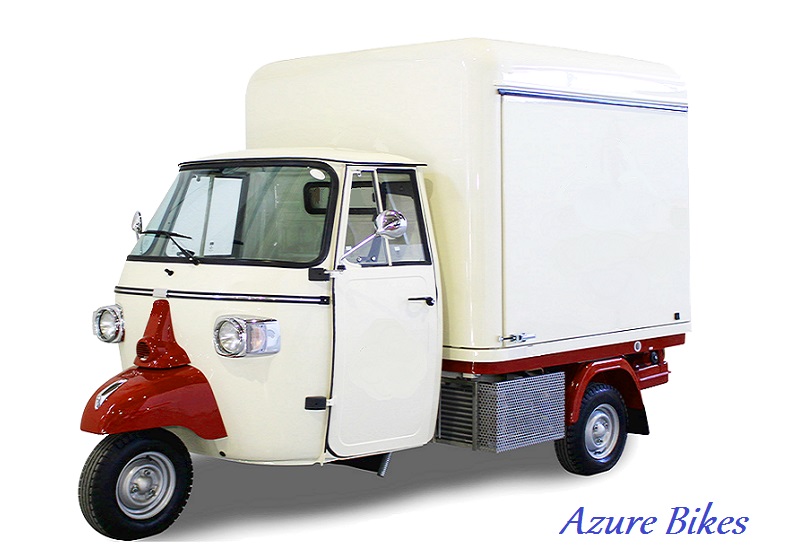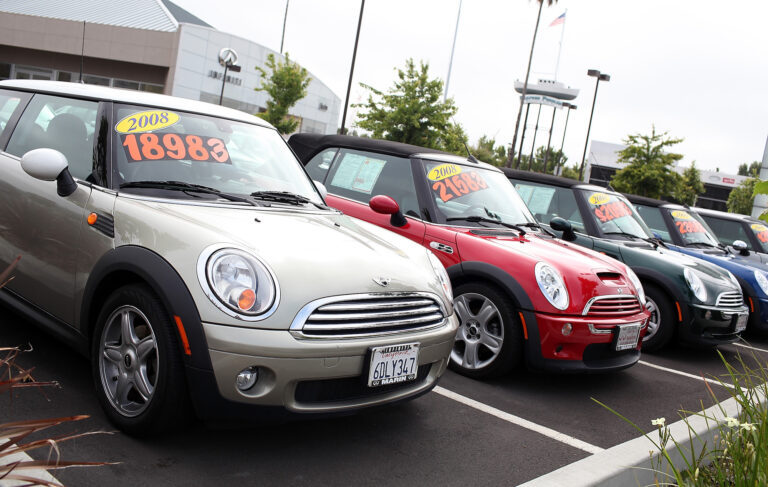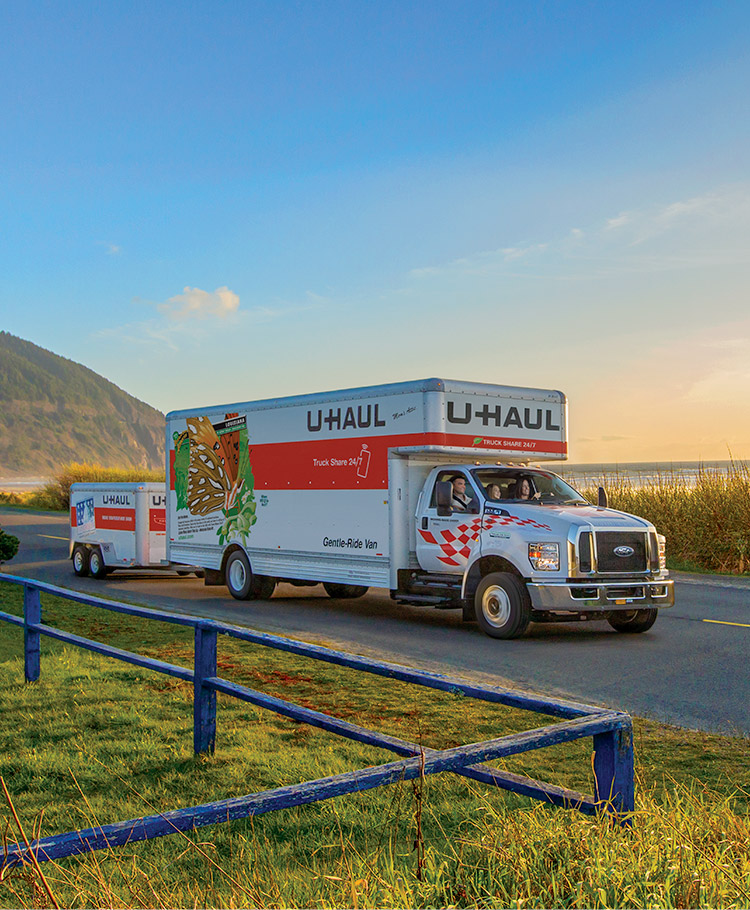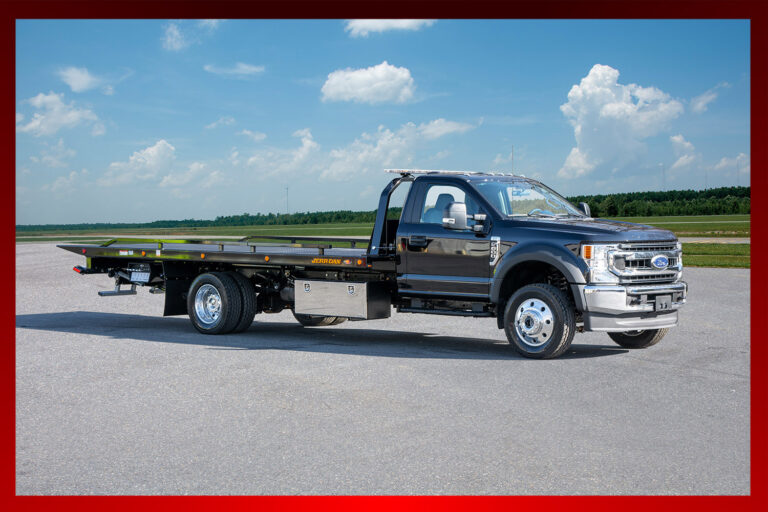Tuk Tuk Truck: The Ultimate Guide to Mobile Entrepreneurship on Three Wheels
Tuk Tuk Truck: The Ultimate Guide to Mobile Entrepreneurship on Three Wheels cars.truckstrend.com
In an era defined by flexibility, innovation, and a yearning for unique experiences, a fascinating vehicle has emerged from the bustling streets of Asia to capture the imagination of entrepreneurs worldwide: the Tuk Tuk Truck. More than just a quirky adaptation of the iconic three-wheeled auto-rickshaw, the Tuk Tuk Truck represents a revolution in mobile commerce, offering a compact, cost-effective, and undeniably charming platform for a myriad of business ventures. It’s a symbol of agility, enabling small businesses to reach customers directly, transforming public spaces into vibrant marketplaces, and injecting a dose of personality into every transaction. This comprehensive guide will delve into every aspect of the Tuk Tuk Truck, from its unique anatomy to practical operational strategies, helping you navigate the exciting world of mobile entrepreneurship on three wheels.
The Anatomy of a Tuk Tuk Truck: What Makes It Unique?
Tuk Tuk Truck: The Ultimate Guide to Mobile Entrepreneurship on Three Wheels
At its core, a Tuk Tuk Truck is a highly customized version of the traditional Tuk Tuk or auto-rickshaw, specifically engineered to serve commercial purposes. While the conventional Tuk Tuk is designed primarily for passenger transport, its truck counterpart repurposes the sturdy, lightweight chassis and often the same efficient engine for utility.
Key Modifications and Distinctions:
- Cargo Bay/Service Unit: The most significant transformation involves replacing the passenger seating area with a dedicated cargo bay, an enclosed service unit, or a specialized workstation. This can range from a simple flatbed for deliveries to a fully equipped mini-kitchen for food vending.
- Structural Reinforcement: To accommodate the added weight of equipment, inventory, and operational stress, the chassis often undergoes reinforcement. Suspension systems might be upgraded, and the overall frame strengthened to ensure stability and durability.
- Power and Utilities: Unlike a standard Tuk Tuk, the truck variant frequently incorporates onboard power solutions. This might include generators, battery banks, or even solar panels to power cooking equipment, refrigeration units, lighting, and point-of-sale systems. Water tanks (fresh and grey water) are common for food and beverage operations.
- Specialized Equipment Integration: The design is highly bespoke, integrating specific equipment relevant to the business model. This could be espresso machines, griddles, ice cream freezers, retail display shelves, or even tools for mobile repair services.
- Branding and Aesthetics: A crucial element of the Tuk Tuk Truck’s appeal is its distinctive look. They are often custom-painted, wrapped, and branded to create a memorable visual identity that draws customers in.
- Engine and Drivetrain: While many retain the original small, fuel-efficient engines (typically 200cc to 600cc), some may feature slightly more powerful versions or modified transmissions to handle heavier loads, especially if operating in varied terrains.

Advantages over Traditional Options:
Compared to a traditional food truck or a static storefront, the Tuk Tuk Truck offers unparalleled advantages:
- Compact Size & Maneuverability: Its small footprint allows it to navigate narrow streets, access unconventional locations, and park in tighter spots where larger vehicles cannot.
- Lower Initial Investment: Generally, the cost of acquiring and customizing a Tuk Tuk Truck is significantly lower than that of a full-sized food truck or setting up a brick-and-mortar store.
- Lower Operating Costs: Fuel efficiency, reduced maintenance, and lower parking fees contribute to economical operation.
- Unique Appeal: The novelty and charm of a Tuk Tuk Truck create an instant attraction, offering a memorable customer experience and strong marketing potential.
- Mobility & Flexibility: The ability to move to different locations allows businesses to chase demand, participate in various events, and adapt to changing market conditions.


Versatility in Motion: Common Applications and Business Models
The adaptability of the Tuk Tuk Truck knows few bounds, making it an ideal platform for a diverse range of entrepreneurial ventures. Its compact size and mobility open up possibilities in urban centers, event venues, and even rural areas.
- Food & Beverage Vending: This is arguably the most popular application.
- Coffee Carts: Serving artisanal coffee, tea, and pastries.
- Ice Cream & Desserts: Mobile ice cream parlors, crepes, waffles, or churros.
- Street Food: Compact kitchens for tacos, hot dogs, sandwiches, local delicacies, or gourmet snacks.
- Mobile Bars: Offering craft beers, cocktails, or fresh juices at events.
- Retail & Pop-Up Shops:
- Flower Vendors: Selling fresh bouquets and potted plants.
- Bookstores/Libraries: A charming mobile library or book sales unit.
- Apparel & Accessories: Pop-up boutiques for unique clothing, jewelry, or handcrafted goods.
- Souvenir Shops: Targeting tourists in high-traffic areas.
- Logistics & Delivery Services:
- Last-Mile Delivery: Efficiently delivering packages, groceries, or documents in congested urban environments.
- Mobile Repair Services: Equipped with tools for bicycle repair, small electronics, or even mobile tailoring.
- Promotional & Experiential Marketing:
- Brand Activation: Companies use custom-branded Tuk Tuk Trucks for product launches, sampling campaigns, or interactive brand experiences.
- Event Information Booths: Providing maps, schedules, and visitor assistance at festivals or large gatherings.
- Personal Services:
- Mobile Grooming: For pets or even quick human touch-ups (e.g., barber services).
- Photo Booths: A unique backdrop and setup for events.
- Tourism & Entertainment:
- Unique Tour Vehicles: Offering personalized city tours with a distinctive flair.
- Mobile DJs/Music Stages: Small, portable sound systems for street performances or events.
The key to success in any of these ventures lies in maximizing the limited space efficiently and leveraging the Tuk Tuk Truck’s inherent charm to create a memorable customer experience.
Designing Your Dream Tuk Tuk Truck: Key Considerations
Building a Tuk Tuk Truck is a blend of engineering, design, and business strategy. A well-thought-out design ensures operational efficiency, compliance, and aesthetic appeal.
-
Define Your Purpose & Business Plan: Before anything else, solidify your business concept. What will you sell or offer? Who is your target audience? What are your operational needs (e.g., refrigeration, cooking, display)? This dictates the entire build.
-
Base Vehicle Selection:
- New vs. Used: New vehicles offer reliability and warranty, while used ones are more budget-friendly but may require more initial maintenance.
- Engine Size & Type: Consider the typical loads, terrain, and desired speed. Diesel engines are common for their torque and fuel efficiency, but petrol and even electric options are emerging.
- Manufacturer & Model: Some brands are more robust or have better spare part availability in your region (e.g., Bajaj, Piaggio, TVS).
-
Layout & Customization: This is where your vision comes to life.
- Ergonomics: Design for ease of use, considering worker comfort and safety within a confined space.
- Workflow: For food trucks, a logical flow from prep to cooking to serving is crucial.
- Equipment Placement: Map out where each piece of equipment will go, considering power access, ventilation, and safety clearances.
- Storage Solutions: Maximize every inch with clever storage, fold-down counters, and integrated shelving.
- Water Systems: Plan for fresh water tanks, grey water disposal, and a hand-washing sink (especially for food businesses).
- Power & Lighting: Determine your power needs (watts/amps) for all equipment. Choose between generators (noise, fuel), battery banks (quiet, limited duration), or solar panels (eco-friendly, weather-dependent). Efficient LED lighting is a must.
-
Safety Features:
- Fire Suppression: Essential for any cooking operation.
- Ventilation: Proper exhaust hoods and fans are critical, especially in enclosed spaces with cooking equipment.
- Electrical Safety: Professional wiring and circuit breakers are non-negotiable.
- Structural Integrity: Ensure the modifications do not compromise the vehicle’s stability or roadworthiness.
-
Branding & Aesthetics:
- Exterior Wrap/Paint: Your truck is a moving billboard. Invest in a professional design that reflects your brand identity.
- Signage: Clear, attractive signage that communicates your offerings.
- Lighting: Creative lighting (e.g., string lights, LED strips) can enhance evening appeal.
-
Working with a Builder: Unless you have significant fabrication experience, collaborate with a reputable custom vehicle builder specializing in mobile units. Discuss your budget, timeline, and exact specifications thoroughly.
Navigating the Legal Landscape: Permits, Regulations, and Compliance
Operating a Tuk Tuk Truck involves a complex web of regulations that vary significantly by location. Failing to comply can lead to fines, forced closure, or even legal action.
-
Vehicle Registration & Licensing:
- Roadworthiness: The modified vehicle must meet local road safety standards. This often requires an inspection.
- Registration: Register the vehicle as a commercial unit.
- Driver’s License: The operator must possess the appropriate driver’s license for the vehicle class (which might differ from a standard car license).
-
Health & Safety Regulations (Especially for Food & Beverage):
- Food Handler Permits: Operators typically need specific certifications.
- Hygiene Standards: Strict requirements for food preparation, storage, water quality, waste disposal, and pest control.
- Equipment Certification: All cooking and refrigeration equipment may need to be commercial grade and certified.
- Inspections: Regular inspections by health departments are common.
-
Zoning & Location Permits:
- Street Vending Permits: Many cities require specific permits to operate on public streets, often with designated zones and time restrictions.
- Private Property Agreements: If operating on private land (e.g., parking lots, plazas), you’ll need permission from the property owner.
- Event Permits: For festivals, markets, or special events, separate permits are usually required.
- Parking & Storage: Consider where the Tuk Tuk Truck will be stored when not in use, and if there are any restrictions.
-
Business Registration & Taxation:
- Business License: Register your business entity (sole proprietorship, LLC, etc.) with the relevant government authorities.
- Tax IDs: Obtain necessary federal, state, and local tax identification numbers.
- Sales Tax: Understand your obligations for collecting and remitting sales tax.
-
Insurance:
- Vehicle Insurance: Standard auto insurance for commercial use.
- General Liability Insurance: Crucial to protect against claims of injury or damage to third parties.
- Product Liability Insurance: If selling food or other products.
- Workers’ Compensation: If you have employees.
Practical Advice: Start your regulatory research early! Contact your local city hall, health department, and department of motor vehicles. Consider consulting with a legal professional or a business consultant specializing in mobile businesses. It’s far easier to address compliance issues during the planning phase than after construction.
Operational Excellence: Tips for Success
Once your Tuk Tuk Truck is built and licensed, operational efficiency and smart strategies are key to long-term success.
- Routine Maintenance: Small engines can be temperamental. Adhere to a strict maintenance schedule (oil changes, tire checks, brake inspections) to prevent breakdowns, which can be costly and damage your reputation. Learn basic troubleshooting.
- Inventory Management: Space is limited, so efficient inventory management is crucial. Track sales to optimize stock levels, minimize waste (especially for perishables), and ensure you never run out of popular items.
- Customer Service Excellence: The novelty of the Tuk Tuk Truck draws people in, but excellent service keeps them coming back. Be friendly, efficient, and engage with your customers. A unique vehicle deserves a unique experience.
- Marketing & Promotion:
- Social Media: Crucial for announcing your location, daily specials, and interacting with customers. Use high-quality photos and videos.
- Local Partnerships: Collaborate with other small businesses, event organizers, or local community groups.
- Loyalty Programs: Encourage repeat business.
- Online Presence: Google My Business, local directories, and potentially a simple website.
- Location Strategy: This is paramount for mobile businesses.
- Research High-Traffic Areas: Parks, business districts, tourist spots, college campuses.
- Attend Events: Festivals, farmers’ markets, concerts, sporting events.
- Track Customer Data: Use sales data to identify peak times and popular locations.
- Be Adaptable: Don’t be afraid to change locations if one isn’t performing well.
- Financial Management: Keep meticulous records of all income and expenses. This helps with budgeting, pricing, and tax preparation. Understand your break-even point and profit margins.
Challenges and Solutions
While the Tuk Tuk Truck offers exciting opportunities, it’s not without its challenges. Proactive planning can turn potential roadblocks into minor bumps.
- Limited Space:
- Solution: Embrace minimalism and multi-functional equipment. Prioritize essential items. Use vertical space, fold-down tables, and smart storage solutions. Efficient workflow design is paramount.
- Weather Dependency:
- Solution: Invest in awnings or small enclosures for rain protection. Offer hot items in cold weather and refreshing options in heat. Plan your schedule around predictable weather patterns. Consider partnerships with indoor venues during inclement weather.
- Mechanical Issues & Breakdowns:
- Solution: Regular preventative maintenance is key. Have a reliable mechanic on call. Carry basic spare parts and tools. Factor in potential repair costs into your budget.
- Permit Hurdles & Regulatory Changes:
- Solution: Thoroughly research all local regulations before investing. Maintain open communication with local authorities. Join local mobile vendor associations to stay informed about changes and advocate for your business. Patience and persistence are often required.
- Competition:
- Solution: Develop a unique selling proposition (USP). Offer a niche product, exceptional service, or a truly memorable brand experience. Focus on quality and build a loyal customer base.
- Power Management:
- Solution: Accurately calculate your power needs. Invest in reliable power sources (generator, battery, solar) with redundancy. Optimize equipment usage to conserve power.
Tuk Tuk Truck: Estimated Price Guide
It’s crucial to understand that the cost of a Tuk Tuk Truck can vary dramatically based on the base vehicle, the extent of customization, the equipment installed, and the region of purchase/build. The table below provides a general estimated range and a breakdown of typical costs. These figures are illustrative and should be confirmed with specific suppliers and builders.
| Category | Description | Estimated Price Range (USD) | Notes |
|---|---|---|---|
| I. Base Vehicle | |||
| New Tuk Tuk (Basic) | Entry-level model, no modifications. | $3,000 – $6,000 | Price varies by brand (e.g., Bajaj, Piaggio), engine size, and country of origin/import. More robust models will be at the higher end. |
| Used Tuk Tuk (Basic) | Older model, may require some initial maintenance. | $1,000 – $3,000 | Condition is paramount. Factor in potential repair costs. |
| II. Customization & Build-Out | |||
| Basic Cargo/Utility | Flatbed, simple enclosure for deliveries, basic mobile display. Minimal internal fit-out. | $2,000 – $5,000 | Ideal for non-food retail, promotional use, or simple transport. |
| Standard Food/Beverage | Enclosed unit, basic counter space, shelving, plumbing for sink, basic electrical wiring for lights/small appliances. | $7,000 – $15,000 | Does not include major cooking equipment or refrigeration. Suitable for coffee, pre-packaged goods, or simple assembly. |
| Full-Service Food Truck | Comprehensive build-out including commercial-grade counters (stainless steel), integrated sinks, dedicated space for specific equipment (grill, fryer), ventilation hood, advanced electrical, water tanks. | $15,000 – $30,000+ | This is where costs escalate quickly. Quality of materials, complexity of design, and builder’s labor rates are major factors. Highly specialized builds can exceed this. |
| III. Essential Equipment | |||
| Generator (Portable) | For powering appliances. | $500 – $2,000 | Inverter generators are quieter and more fuel-efficient. Size depends on power needs. |
| Refrigeration | Mini-fridge, commercial cooler, or upright freezer. | $300 – $2,000+ | Varies widely by size, type, and energy efficiency. |
| Cooking Appliances | Espresso machine, griddle, fryer, induction cooktop, toaster. | $200 – $5,000+ (each) | Commercial-grade equipment is expensive but durable. |
| Water Heater | For hot water supply (required by many health codes). | $100 – $500 | Small tankless or electric heaters. |
| POS System/Tablet | For sales transactions. | $200 – $1,000 | Monthly software fees may apply. |
| IV. Branding & Marketing | |||
| Vehicle Wrap/Paint | Professional vinyl wrap or custom paint job. | $1,000 – $3,000 | Crucial for brand visibility. |
| Signage | Menu boards, exterior signs, lighting. | $200 – $1,000 | |
| V. Permits, Licenses & Insurance (Initial Costs) | |||
| Business Registration | State/local business licenses, EIN. | $50 – $500 | Varies by jurisdiction. |
| Vehicle Registration | Commercial vehicle registration. | $100 – $500 | Varies by state/country. |
| Health/Food Permits | Inspections, food handler certificates. | $100 – $1,000 | Can be annual. Highly variable by local health department. |
| Street Vending Permits | Daily, weekly, or annual permits. | $50 – $5,000+ (annually) | Highly dependent on city/county and location. Some prime spots are very expensive. |
| Insurance (Annual) | Vehicle, general liability, product liability. | $1,000 – $3,000+ | Essential protection. Varies based on coverage, vehicle value, and business type. |
| VI. Contingency & Miscellaneous | |||
| Unexpected Costs | Repairs, unforeseen regulatory requirements, initial inventory. | 10-20% of Total | Always budget for the unexpected. |
| TOTAL ESTIMATED START-UP COST | (Excluding initial inventory and ongoing operational costs) | $8,000 – $50,000+ | This range is broad due to the vast differences in base vehicles and customization levels. A basic coffee cart might be at the lower end, while a fully equipped gourmet food truck would be at the higher end. Always get detailed quotes from builders and suppliers. |
Frequently Asked Questions (FAQ)
Q1: What is the average cost of a Tuk Tuk Truck?
A1: The cost varies significantly. A basic, used Tuk Tuk converted for simple retail might start around $8,000-$15,000 USD. A new Tuk Tuk with a full, commercial-grade food service build-out and equipment can easily range from $25,000 to $50,000+ USD. The price depends heavily on the base vehicle (new vs. used), the complexity of the custom build, and the quality of internal equipment.
Q2: What kind of driver’s license do I need to operate a Tuk Tuk Truck?
A2: This depends on your local regulations. In many places, a standard car driver’s license (Class D or equivalent) is sufficient, as Tuk Tuks are often classified similarly to motorcycles with sidecars or small utility vehicles. However, some regions might require a specific commercial license or a motorcycle endorsement, especially if the vehicle exceeds certain weight limits or engine sizes. Always check with your local Department of Motor Vehicles or equivalent authority.
Q3: Are Tuk Tuk Trucks legal everywhere?
A3: The legality of operating a Tuk Tuk Truck, particularly for commercial purposes, varies widely by city, state, and country. Vehicle registration, roadworthiness, and commercial vending permits are the main hurdles. Some urban areas are very accommodating to mobile businesses, while others have strict regulations or outright bans. It’s crucial to research local zoning laws, health codes (for food businesses), and vending ordinances before investing.
Q4: How fast can a Tuk Tuk Truck go, and are they safe on highways?
A4: Most Tuk Tuk Trucks are equipped with small engines (200cc-600cc) and are not designed for high speeds. Their top speed typically ranges from 40-60 km/h (25-37 mph). They are generally not suitable or safe for highway travel due to their low speed, light weight, and limited crash protection. They are best suited for urban, suburban, and local road operations.
Q5: Are Tuk Tuk Trucks fuel-efficient?
A5: Yes, generally they are quite fuel-efficient due to their small engines and lightweight construction. Fuel consumption varies based on engine size, load, and driving conditions, but they are significantly more economical to run than larger food trucks or vans.
Q6: How long does it take to build a custom Tuk Tuk Truck?
A6: The build time depends on the complexity of the customization and the builder’s schedule. A basic conversion might take 2-4 weeks, while a full-service food truck build-out can take anywhere from 6-12 weeks or even longer, especially if custom fabrication is involved. Factor in additional time for permits and inspections.
Q7: Can I convert an existing passenger Tuk Tuk into a Tuk Tuk Truck?
A7: Yes, many Tuk Tuk Trucks are conversions of existing passenger models. The rear passenger cabin is typically removed and replaced with a custom-built commercial unit. This can be a more cost-effective option than starting from scratch, but it’s important to ensure the base vehicle is structurally sound and capable of handling the modifications and added weight.
Q8: What are the main advantages of a Tuk Tuk Truck over a traditional food truck or a brick-and-mortar store?
A8: Advantages include:
- Lower Initial Investment: Significantly cheaper to acquire and customize.
- Lower Operating Costs: More fuel-efficient, cheaper to maintain, lower parking fees.
- Greater Maneuverability: Can access smaller spaces and denser urban areas.
- Unique Charm & Marketing Appeal: Stands out and attracts attention due to its novelty.
- Flexibility: Easily relocate to chase demand or participate in different events.
- Reduced Overhead: No fixed rent, lower utility bills compared to a physical store.
Conclusion
The Tuk Tuk Truck is more than just a vehicle; it’s a testament to entrepreneurial spirit and a canvas for creativity. It embodies the essence of mobile commerce – agile, efficient, and deeply engaging. From serving gourmet coffee on a bustling street corner to delivering bespoke bouquets for a special occasion, these charming three-wheelers are empowering individuals and small businesses to carve out their niche in a dynamic marketplace. While navigating the journey requires careful planning, adherence to regulations, and a commitment to operational excellence, the unique appeal and versatility of the Tuk Tuk Truck offer a distinctive path to success. As urban landscapes evolve and consumer preferences shift towards convenience and unique experiences, the Tuk Tuk Truck is poised to continue its delightful revolution, one compact, customized journey at a time.






